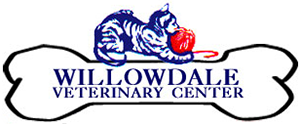Library
-
Clonidine is a medication that is used to treat behavioral disorders in dogs, particularly anxiety or phobia-related. Give as directed. Side effects are generally mild if present and include sedation, lethargy, agitation/excitation, aggression, and constipation. Monitoring blood pressure as well as heart rate and rhythm is recommended with chronic use. If you suspect an overdose or an adverse reaction to the medication, call your veterinary office immediately.
-
Dexmedetomidine is a sedative/tranquilizer used primarily in cats and dogs as a pre-medication injection for anesthesia or for chemical restraint. It is also used orally in dogs for short-term anxiety management. The most common side effect is a low heart rate. Dexmedetomidine should not be used in patients with severe heart liver or kidney disease. It should be used cautiously in young, old, or weak animals. Consult your veterinary office immediately if you suspect a negative reaction or overdose.
-
Many veterinarians, including nutritionists and behaviorists, believe it is important for dogs and cats to express their natural foraging and hunting behaviors. For pets living indoors, this can be difficult, and the lack of this stimulation can sometimes lead to behavior problems. Enriching a pet's environment with food toys and puzzles at mealtimes can fulfill the need to forage. The use of toys, puzzles and other novel methods of food delivery can also be effective ways to increase daily movement in overweight or inactive pets.
-
Many pets are sensitive to being restrained for grooming. With slow progress and positive rewards, your pet can learn to accept or even enjoy having their teeth cleaned.
-
Treats are a wonderful way to provide positive reinforcement to your dog during a training session. Choose low-calorie foods such as green beans, carrots, and watermelon. Avoid foods that are potentially harmful such as chocolate, garlic, onions, raisins, grapes, macadamia nuts, and products that may have xylitol. Limit high-calorie treats and keep treats within 10% of your dog's total daily calorie intake. Keeping training sessions short and engaging while providing appropriate foods as treats can be a wonderful way to strengthen the human-animal bond.
